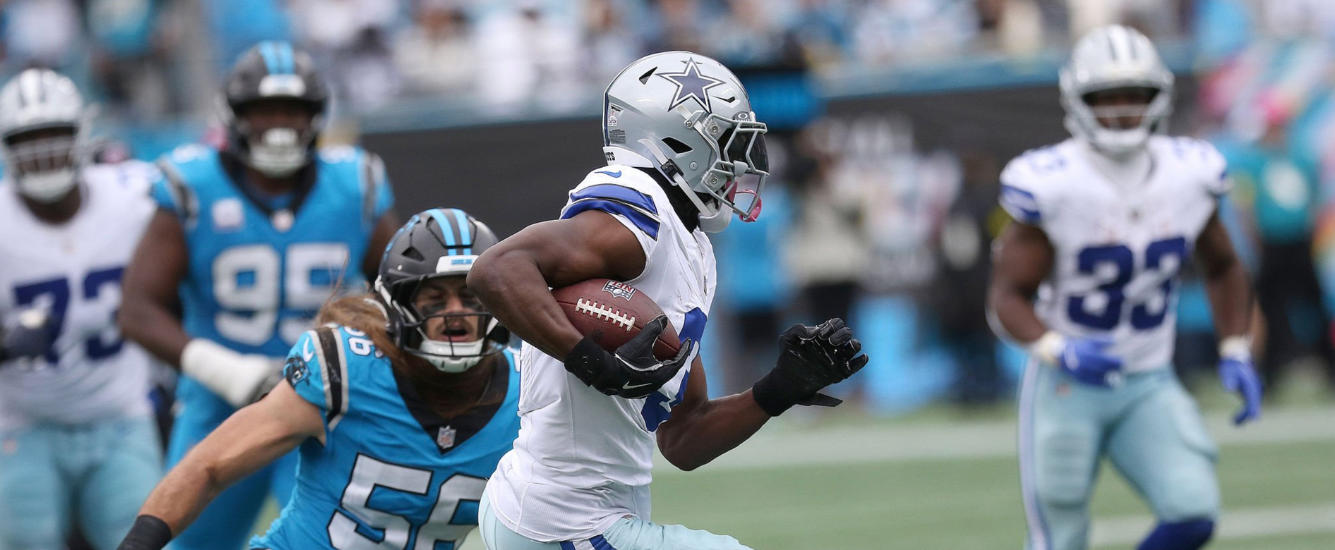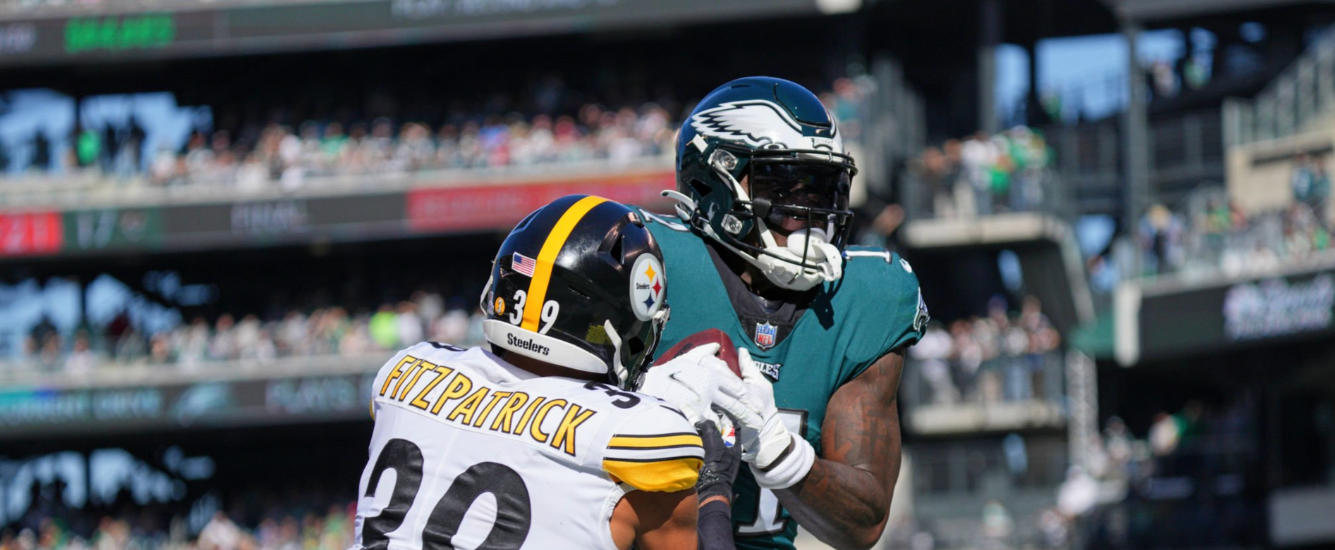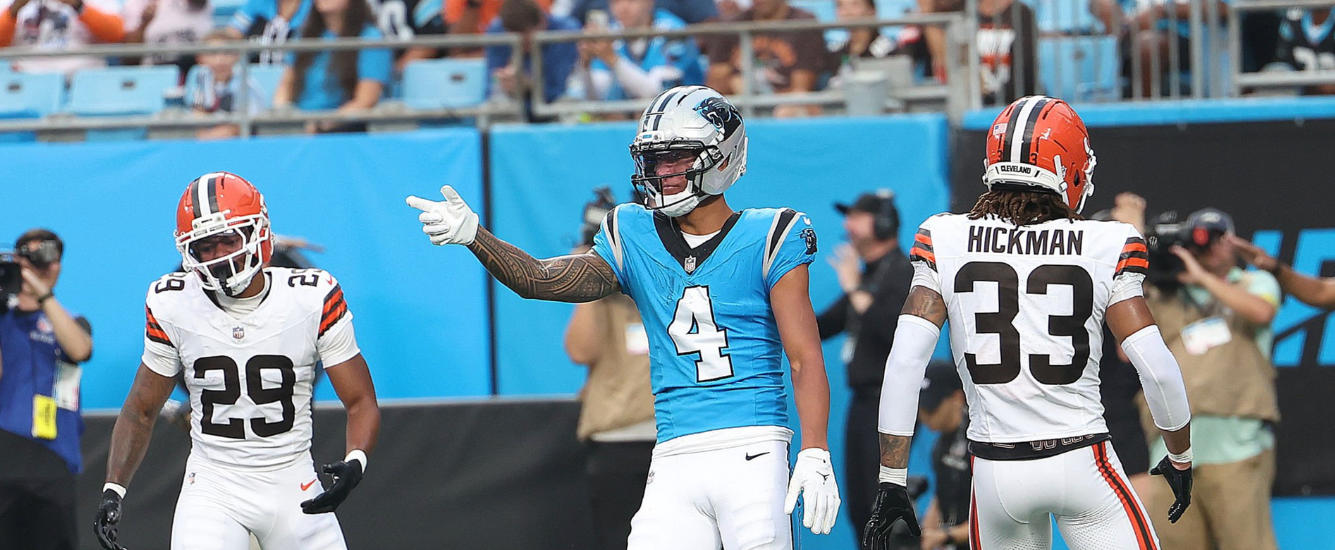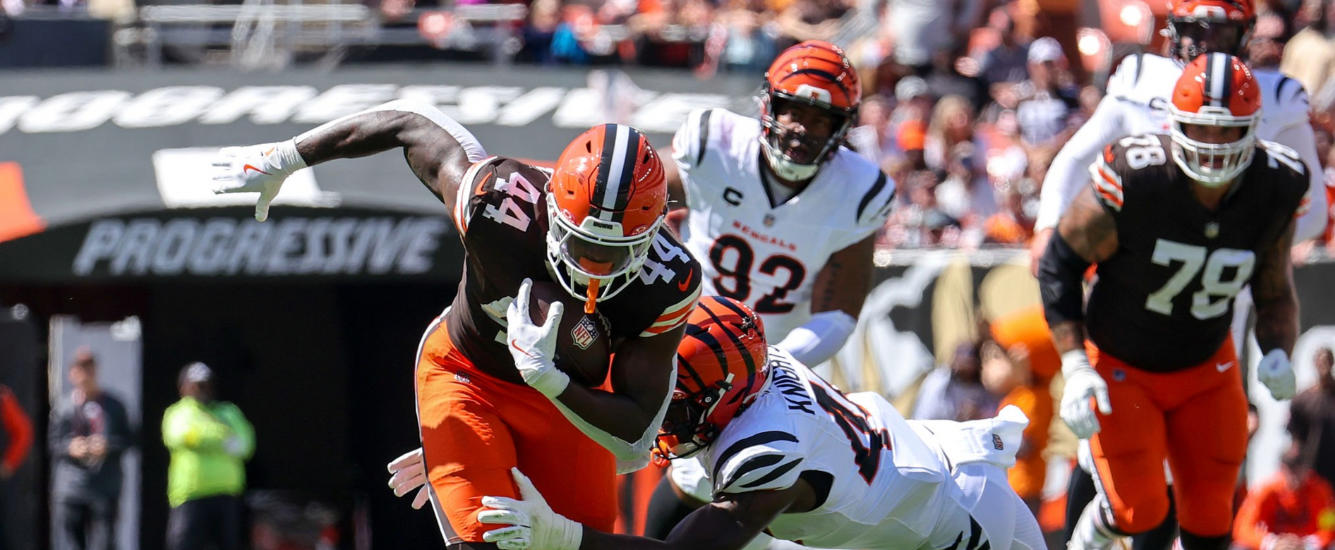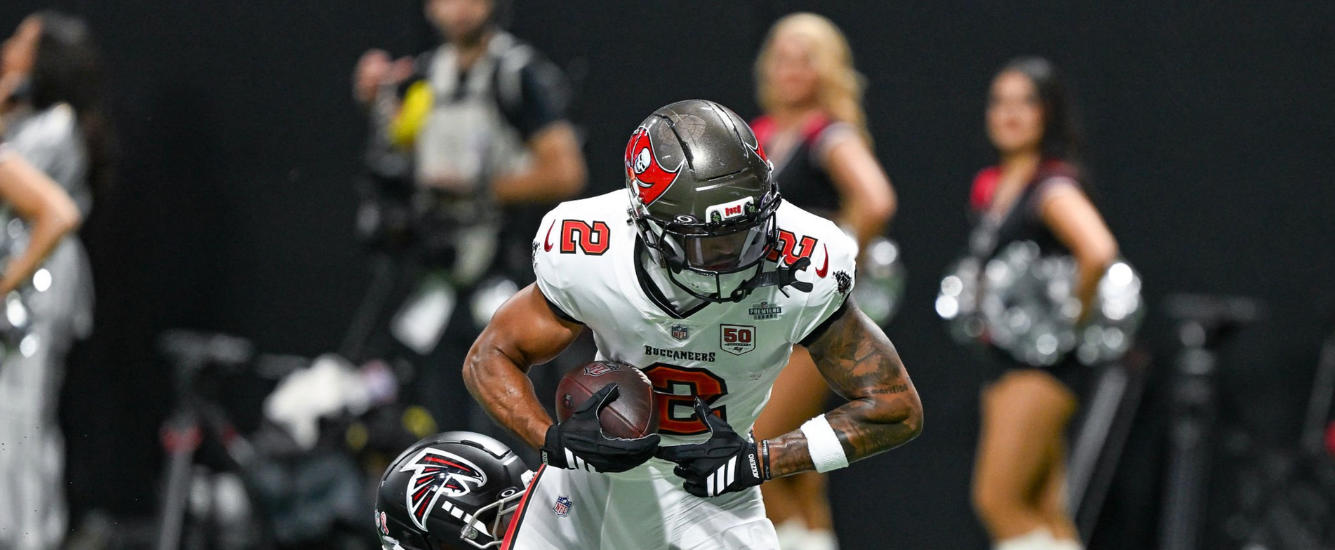The Wrong Read has had many lives — first as a reflection on insights from the RotoViz podcasts; then as a freeform space for exploring a variety of metrics and strategies. It will likely continue in that latter function, but at least for now — in season — it’s an in-depth matchup lookahead article.
Each week I’ll gather advanced stats from our tools — mainly the Advanced Team Stat Explorer — to paint a picture of the upcoming week and offer some thoughts on how the games might unfold. My interest is in how the games will impact fantasy teams, and as such I’m looking mainly at the metrics that I think can help us predict how different teams and players will (or won’t) score fantasy points.
This is an early week preview featuring the Thursday night game. Stay tuned for the full version later in the week.
A Brief Aside on a Surprising Main Event Team
Before we get into it, I want to provide a quick update on the Main Event team I drafted with Hasan Rahim, Ben Gretch, Pat Kerrane, and Peter Overzet. I don’t necessarily think this is instructive, but it was a fun team for a variety of reasons. (Of course you should feel free to skip this section.)
As you’ll recall, that draft started inauspiciously:
In the end we felt it best to leave the decision up to the fantasy gods. We used the entirety of our six-hour clock (including the overnight pause) before timing out. We autodrafted [Bijan] Robinson. Thus, we chase the dream scenario. We also intend to have the distinction of being the first team to win the Main Event after our first pick was selected by autodraft.
Then our starting quarterback played four snaps before tearing his Achilles, which also eliminated any upside for our second-round pick.

Our third- (Rhamondre Stevenson) and sixth-round (Jahan Dotson) picks were unstartable the entire season (which didn’t stop us from starting them). Our seventh-round pick (Jaxon Smith-Njigba) took 13 weeks to break out, and even that looks now like a one-week-only event. Our eighth-round pick (Quentin Johnston) still looks like a long-term bust even after amassing 91 yards last week. Our 11th-round pick is fully healthy, but has played only 11 snaps all season (Rashaad Penny). Our best pick of the draft was Trey McBride in the 18th round . . . whom we dropped after Week 1 (he played just 23 snaps and had only two targets). Needless to say, this team struggled early in the season. After Week 5 we were 2-3, and ranked 11th in points scored.
Week 6 brought the “all-play” week — a bye of sorts, and a chance for our players and staff to clear their heads and press the reset button. Sometimes that’s enough. We didn’t lose another game all season. We finished with the best record (9-3) and went on to win the league title. If Zach Wilson can turn Garrett Wilson into a superstar, we could still make a run in the Championship Round.
The moral of the story: don’t be afraid to let the computer pick for you in Round 1.
Los Angeles Chargers at Las Vegas Raiders

- The Chargers come into this game without Justin Herbert. Easton Stick will make his first NFL start. The Raiders do not present a friendly matchup for a new QB. They are No. 4 in passing boom rate allowed and No. 9 in passing success rate allowed.
- Meanwhile, the Chargers have been struggling even with Herbert under center. They are No. 25 in total passing game FPOE, but that overstates their recent play in many ways. The Chargers have scored only 23 points over the last three games. That’s the three-game total, not an average.
- To be sure, games against the Ravens, Patriots, and an ascending Broncos’ pass defense make things difficult. But over the last eight weeks the Chargers are below average in every advanced passing metric.
- The problem is they are much worse at running the ball. No team averages fewer yards after contact per carry or a lower rushing boom rate. Only one team averages a lower rushing success rate. Meanwhile Las Vegas ranks inside the top-seven in many rushing defense metrics.
- That said, they are the worst team in allowing yards before contact, while the Chargers are middling at gaining yards before contact. That metric hasn’t hugely impacted the EPA numbers thus far, except insofar as it leads the Raiders to a No. 23 ranking in rushing success rate.
- If Austin Ekeler can find some space around the line of scrimmage, the Chargers may be able to rely on him to pick up first downs and keep the chains moving. That said, against Stick, it’s likely the Raiders sell out to stop the run. Ekeler could be more valuable as a receiver in this game. Stick’s presence in the game last week helped him return to double-digit receiving EP.

- Las Vegas gets an easier matchup in both phases of the game. They will likely be without Josh Jacobs. Instead, Zamir White and Ameer Abdullah will get chances to move the ball against L.A.’s beatable run defense. The Chargers are No. 29 in yards after contact allowed and No. 25 in rushing boom rate allowed. White hasn’t done anything in the NFL thus far, but if this defense enables him to break off a long run, he may yet salvage his career.
- The Chargers are slightly tougher against the pass, but still rank 20th in passing success rate allowed and 23rd in passing game FPOE allowed. Aidan O’Connell struggled against Minnesota’s pass rush, which had about the same ranking as Los Angeles’ last week. So the fact that the Chargers are just 22nd in pressure rate might not be as good news for the Raiders as we’d like. Despite the lower than average pressure rate, L.A. is second in the league in total sacks.


